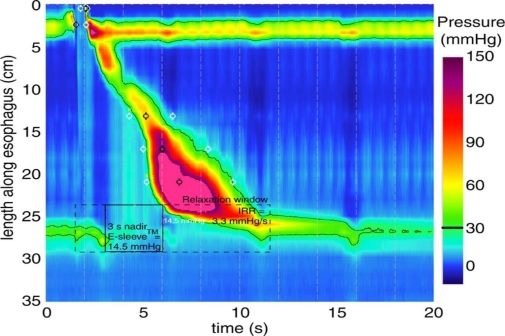Manometry
Manometry is measurement of pressure within various parts of the GI tract. It is done by passing a catheter containing solid-state or liquid-filled pressure transducers through the mouth or anus into the lumen of the organ to be studied.
Manometry typically is done to evaluate motility disorders in patients in whom structural lesions have been ruled out by other studies.
Manometry is used in the esophagus, stomach and duodenum, sphincter of Oddi, and rectum.
Aside from minor discomfort, complications are very rare.

Esophageal manometry: This test is used to evaluate patients with dysphagia, heartburn, or chest pain. It measures the pressure in the upper and lower esophageal sphincters, determines the effectiveness and coordination of propulsive movements, and detects abnormal contractions. Manometry is used to diagnose achalasia, diffuse spasm, systemic sclerosis, and lower esophageal sphincter hypotension and hypertension.
Anorectalmanometry: This test evaluates the anorectal sphincter mechanism and rectal sensation in patients with incontinence (and sometimes constipation) by means of a pressure transducer in the anus. It can help diagnose Hirschsprung’s disease and provide biofeedback training for fecal incontinence.
About
Dr. Neelam Mohan is one of the few women doctors in India who has balanced the various pillars of medical profession and is appreciated as an astute clinician/ healer, bright teacher, researcher, efficient leader/ administrator and for her contribution in social work. She has to her credit many achievements that has put the country on the global medical map.
Services
Copyright 2019 Drneelammohan.com. All rights reserved.

